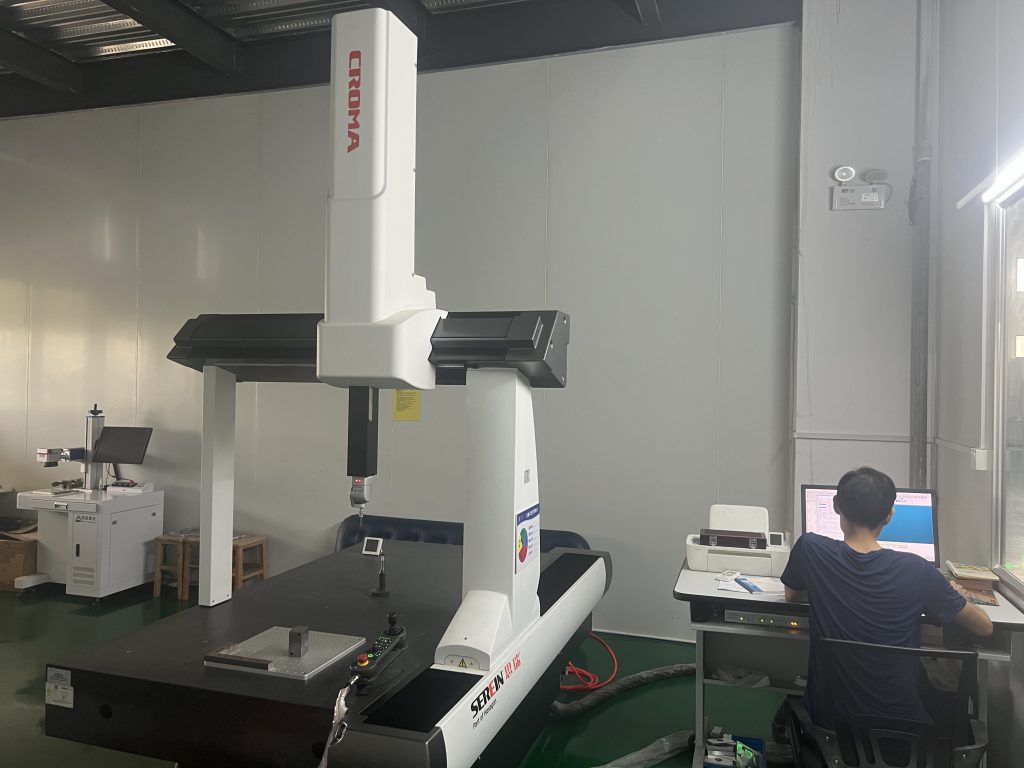Coordinate Measuring Machine (CMM) inspection is essential in modern manufacturing, ensuring precise dimensions and high-quality components. Here’s a streamlined overview to help you quickly understand its importance, capabilities, and benefits.

What is CMM Inspection?
CMM inspection ensures manufactured parts meet precise design specifications. By measuring 3D geometrical characteristics, it guarantees components fit and function as intended.
Types of CMMs
Each CMM type caters to different inspection needs:
Cantilever: High accuracy for small-to-medium parts.
Bridge: Versatile and efficient for a wide range of components.
Horizontal Arm: Ideal for large, expansive parts in industries like aerospace.
Articulating Arm: Flexible and portable, perfect for on-site inspections.
Gantry: Best for massive, complex parts requiring extreme precision.
Key CMM Capabilities
Dimensional & Profile Measurements: Ensures components meet size and shape requirements.
Angle & Depth Verification: Validates critical design angles and depths.
Advanced Features: Includes laser scanning, CAD integration, and touch probe systems for precise and rapid inspections.
Benefits of CMM Inspection
Improved Product Quality: Ensures components meet exact specifications.
Reduced Waste: Detects errors early to minimize material loss.
Cost Efficiency: Lowers rework and production errors.
Regulatory Compliance: Meets strict industry standards.
Data-Driven Insights: Enables continuous improvement with detailed analysis.
Reverse Engineering: Captures measurements for redesign or replication.
Optimized Efficiency: Accelerates production with accurate and fast inspections.
Applications in Industries
CMM inspection is used widely in:
Automotive: Ensures part accuracy for assembly and performance.
Aerospace: Validates safety-critical components.
Medical: Guarantees precision in surgical tools and implants.
Defense: Maintains high standards for military equipment.
Overcoming Common Challenges
Complex Geometries: Use non-contact probes like lasers for intricate designs.
Material Sensitivities: Optical probes prevent deformation in soft materials.
Environmental Factors: Maintain controlled lab conditions for accurate results.
Choosing the Right CMM Service Provider
Look for providers with:
Proven experience and expertise.
Accreditation (e.g., ISO standards).
Advanced equipment and reporting tools.
Flexibility to adapt to your project needs.
Conclusion
CMM inspection is indispensable for manufacturers aiming for precision and quality. It reduces errors, enhances efficiency, and ensures compliance across industries. Partnering with reliable experts like OneFix guarantees your manufacturing needs are met with excellence.
OneFix – Your Trusted Partner in Precision Manufacturing.
Ready to enhance your production with accurate CMM inspections? Contact us today for reliable, top-quality services!
